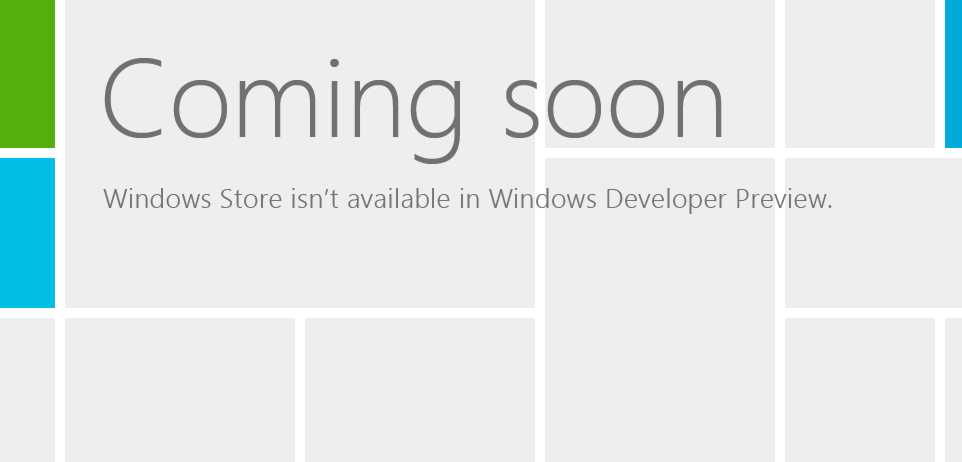| Metro apps - a closed world |
| Written by Mike James |
| Tuesday, 20 September 2011 |
|
Microsoft plans to control what apps you can have running under Metro and this brings the closed "walled garden" approach to software to the desktop environment for the first time. Although Microsoft is making no secret of the way that it plans to run its app store for Metro apps, the effect that this is going to have on the future is only just sinking in to the developer community.
Metro apps are to be sold via Microsoft's own app store, and it will take a commission of around 30% of every sale. Obviously, as this is early days, the fine details could change. This percentage isn't necessarily unreasonable, but Microsoft will also have to approve every application, and you won't be able to distribute anything unless it either makes it into the app store or you get special permission because you want an enterprise only app or for development reasons. To quote from the Microsoft document on Metro Apps: "...all roads, as the saying goes, lead to the Windows Store. For Metro style apps, that is, the Windows Store is the only means of general distribution (enterprise customers and developers can bypass the store to side-load apps)." In other words, Metro apps are going to be a closed world, just like the Apple App Store and Windows Phone 7. Microsoft goes to great lengths to point out the advantage of having a single point of sale for you apps that is also trusted by the end user. It also explains how Store policy will restrict the types of app that can be accepted - although this is vague: Store policy and various runtime restrictions automatically exclude certain types of apps, which can only be implemented as desktop apps. So basically if you don't want to play by the rules then there is always the old-fashioned desktop for you.
It also seems that there will be a joining fee to get apps into the Store. This isn't certain, but given the $99 per annum fee to get a Windows Phone 7 app accepted, it seems highly likely. So what are we to make of this closed world? The first thing is that it doesn't seem to have done iOS developers any harm and, if the Metro/WP7 market turns out to be just as big, then there is a profit to be had. However, Microsoft and Apple both exercise a monopoly on apps sales. If you have a different vision of what an app should be then you have nowhere else to go. This cannot be right and it just encourages jail breaking and risky activities - just like any prohibition. There is also the fact that programmers with an idea they want to develop in their own time are going to be put off. I don't know about you, but having to pay Microsoft $99 for the privilege of being able to install my app on my phone is an insult. The same argument applies to Apple and so most of my experimental work is done on Android - because it is free in most reasonable senses of the word. You could say so what? After all, who cares about the small fry and their experimental apps as long as during the working week they are creating WP7 and iOS apps for the controlled marketplace. The answer is that my experiments are the result of a great idea, or at the very least, something novel that wouldn't get a chance in a business environment. Both Apple and Microsoft are making this sort of developer look elsewhere. Apple can probably afford to do this, but can Microsoft when it is struggling to achieve acceptance? Whatever you think about the fine details, the spread of the "walled garden" from the mobile environment to the desktop is a sea of changethat is happening without us really noticing.
Further readingGetting started with C# Metro apps Windows 8 - after the dust has settled Visual Studio 11 preview - download now! Windows 8 - the Developer's Take
If you would like to be informed about new articles on I Programmer you can either follow us on Twitter or Facebook or you can subscribe to our weekly newsletter.
|
| Last Updated ( Tuesday, 20 September 2011 ) |



